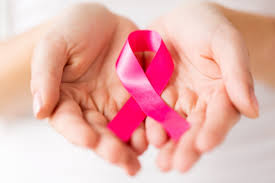

We have already raised that fertility can be a major issue amongst patients receiving treatment for cancer. Fertility issues could arise in both male and female patients. The best that can be done to handle these is to discuss one’s concerns with the treating doctor and not take anything for granted. In this article we discuss some suggestions for dealing with these issues.When a person is diagnosed with cancer, fertility is an issue that may not be raised immediately. The patient becomes a priority for the patient himself, his family and the medical team. It cannot be denied that Cancer treatment is known to have major effects on fertility of the patient. Many cancer patients who are yet to become parents often have questions about how exactly the treatment might affect their chances to become a parent. It is important to gather information, understand the options in order to be able to make the right decisions. Any kind of hesitation or presumption may prove otherwise for a family.
Factors determining fertility
Fertility depends on multiple issues during cancer treatment. The most important factor being nature of treatment and the site of disease. It could be possible that the disease involved a reproductive organ hence having an impact on fertility of the patient. It is also possible that chemo drugs that a patient may be put on may have an impact on fertility of a patient. As we discussed in our article on hair loss chemo drugs are not able to distinguish between good cells and bad cells and attack all growing cells. The same holds true in case of the reproductive process. In case of patients who are recommended radiation, the site of cancer has a crucial role to play in having an impact on fertility of a patient.
Infertility in Cancer Patients
Infertility for a man refers inability to produce healthy and sufficient sperms and for a woman may mean that her eggs are not mature enough and they are not able to attach to the ovarian wall.
You must talk to the doctors and the nurses right before starting treatment for cancer. Before the treatment starts you must discuss with them the possibility of you having a child post the treatment. The doctor will discuss your chances of having a child post treatment and how best to ensure that the same is preserved.
The questions you must ask the doctor are as follows:
- What will be the duration of the treatment? Will the duration affect your chances of having a biological child?
- Is there anything that can be done to ensure that you can have a child even after treatment?
- Discuss if loss of fertility will be short or long term.
- Ask after how many months of the treatment can you look at an option of having a baby.
- You can also meet a fertility specialist before the treatment and take their opinion. They can be better to suggest a treatment compared to a cancer specialist.
- Women must find out if the cancer treatment will leave her ovaries effected. It is also important to find out if the treatment can lead to early menopause.
- Cancer treatment can also damage some parts of the body that can make it difficult for a woman to continue a full term pregnancy. This must be discussed with the doctor.
Options to look at

Once the matter is brought up and discussed with the doctors, they will discuss the feasibility of having a healthy family. The idea of this article is to discuss some of the options that are available. Exercise of option is case of personal choice and medical feasibility. Some of the options that are available for women patients are:
- Embryo freezing – this can be used by women who have a partner. The eggs are removed before the cancer treatment. They are fertilised in a lab and then implanted into the womb with IVF. This is becoming a very common method in cancer treatments to preserve embryos.
- Ovarian transportation – This is done to ensure that the ovaries are not damaged by the radiotherapy. The ovaries are kept is a place where the radiation cannot reach it.
- Fertility sparing surgery – in this the ovaries are spared from the treatment so that the woman can bear a child later.
- Surrogacy
- Adoption
Some options that are available to men receiving treatment are:
- In some cases the sperms can be preserved in the lab for future.
- You can also look at the option of donor sperms.
- Adoption
We hope that this article on fertility issues in cancer patients can help you protect your chances of having a child post the cancer treatment. We just want the readers to know that cancer can leave you infertile at times. The points that we have mentioned can definitely help you to keep your hopes of becoming a parent alive.
References:
Sex and Cancer: Six Weeks to Better Sex for Couples During and after Cancer Treatment by Kypris Aster Drake









